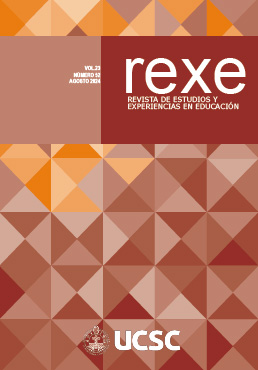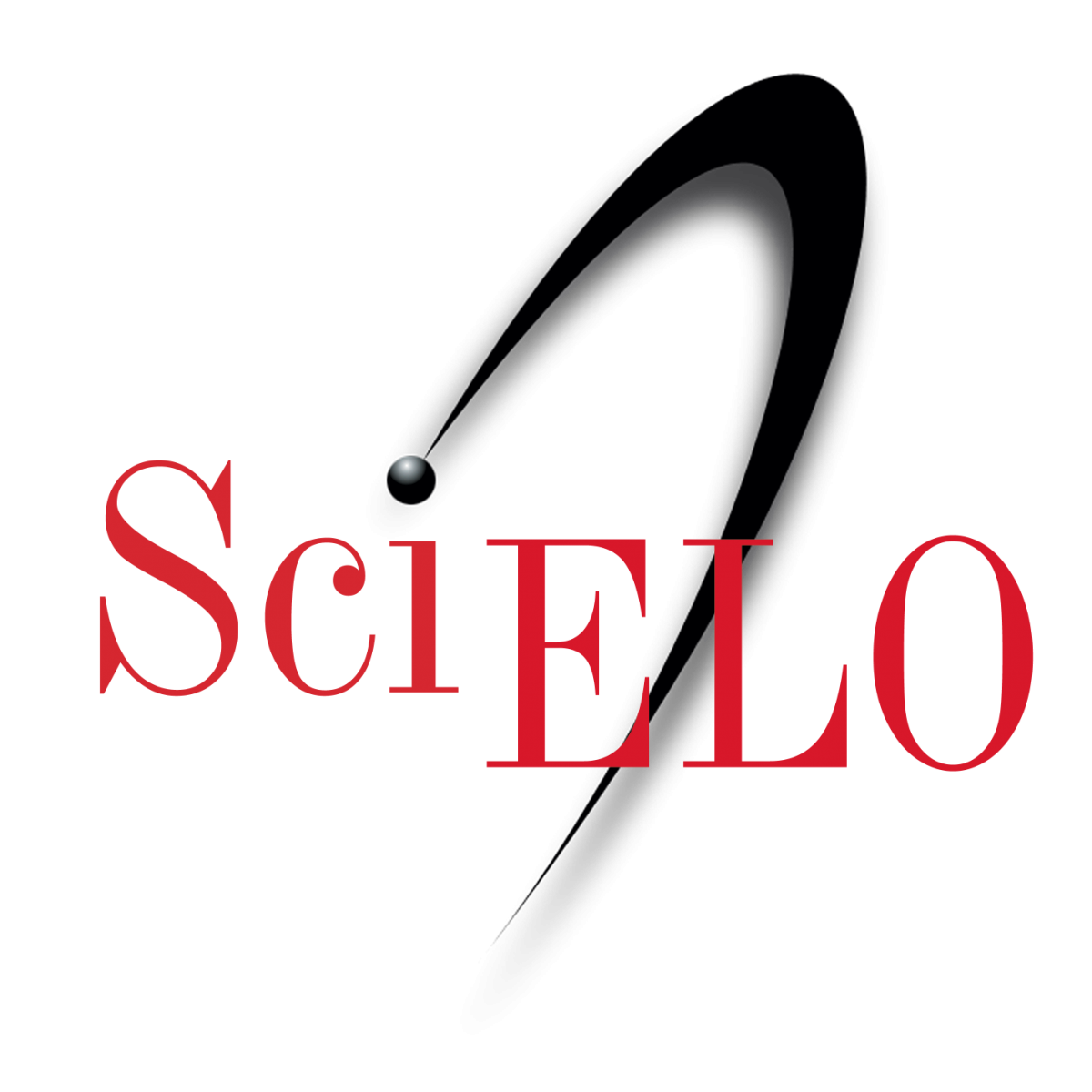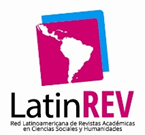Inclusión educativa en Colombia: El impacto del periódico escolar en una escuela primaria a través de la Investigación – Acción
DOI:
https://doi.org/10.21703/rexe.v23i52.2324Keywords:
Inclusive education, cultural identity, teaching methods, student participation, school publicationsAbstract
Inclusive education has been consolidated as a universal right in which leading inclusive processes becomes an unavoidable commitment of educational institutions, family, and society. The present time demands openness to a new educational vision, which breaks the traditional schemes and makes room for new strategies where there is respect for the different dynamics of communication, rhythms and learning styles, allowing the free development of the being. In this context, the research process of analysis of the impact of implementing the school newspaper in a public educational institution in Colombia, with children in fifth grade of primary school, is developed. The research carried out is framed within the qualitative approach and responds to the methodological design of action – research, with direct participation of the researchers within the context of application, which was approached using the cultural identity of the region as a guiding theme. Through the implementation of the school newspaper, dynamics of participation, teamwork and motivation were generated, as well as spaces for diversity, where all students were able to use their skills and learn about different topics of interest in a cross – cutting manner, enhancing their learning process in a comprehensive manner. The project shows a significant contribution to the rescue of cultural traditions, as a main element that favors inclusion based on criteria of identity, respect, and value for difference, making it a means that strengthens the construction of knowledge.
Downloads
References
Abero, L., Berardi, L., Capocasale, A., García, S. y Rojas, R. (2015). Investigación Educativa. Abriendo puertas al conocimiento. Consejo Latinoamericano de Ciencias Sociales.
Booth, T., y Ainscow, M. (2000). Índice de inclusión. Desarrollando el aprendizaje y la participación en las escuelas. Centre for Studies on Inclusive Education (CSIE).
Busquets, M., Cainzos, M., Fernández, T., Leal, A., Moreno, M., y Sastre, G. (1993). Los temas transversales. Claves de la formación integral. Aula: XXI/Santillana. Madrid, España. Primera Edición.
Campos, J. (1995). El periódico escolar: Un acercamiento a la cultura organizativa del centro. Comunicar, 5(1), 113 – 119. https://doi.org/10.3916/C05-1995-21
Díaz, A. y García, J. (2014). Desarrollo del curriculum en América Latina: Experiencia de diez países. Miño y Dávila Editores.
Escarbajal, A., Mirete, A., Maquilón, J., Izquierdo, T. López, J., Orcajada, N. y Sánchez, M. (2012). La atención a la diversidad: la educación inclusiva. Revista Electrónica Interuniversitaria de Formación del Profesorado, REIFOP, 15 (1), 135 – 144. https://dialnet.unirioja.es/servlet/ articulo?codigo=4617037
García, A. (2020). Educación inclusiva y marco legal en Colombia. Una mirada desde la alteridad y las diferencias. Tesis Psicológica, 15(2), pp. 1-32. https://dialnet.unirioja.es/servlet/articulo?codigo=7903724.
González, P. (2005). La respuesta educativa a la diversidad desde el enfoque de las escuelas inclusivas: una propuesta de investigación. Revista de Psicodidáctica, 10(2), pp. 97-109. http://hdl.handle.net/11162/189600.
González, T. (2010). Evaluación inclusiva y calidad educativa: concreciones conceptuales y metodológicas. Revista Educaçao, Artes e Inclusao, 1(3), 19-29. http://hdl.handle.net/11441/25962.
Hernández - Sampieri, R., Fernández, C., y Baptista, P. (2014). Metodología de la investigación (6a ed.). México: Mc Graw Hill Education.
Lopezosa, C. y Codina, L. (2023). ChatGPT y software CAQDAS para el análisis cualitativo de entrevistas: pasos para combinar la inteligencia artificial de OpenAI con ATLAS.ti, Nvivo y MAXQDA. Serie Editorial DigiDoc. https://repositori.upf.edu/handle/10230/55477
Ministerio de Educación Nacional [MEN]. (2001). Decreto 2562 de 2001 “Por el cual se reglamenta la Ley 387 del 18 de julio de 1997, en cuanto a la prestación del servicio público educativo a la población desplazada por la violencia y se dictan otras disposiciones.
Ministerio de Educación Nacional [MEN]. (2017). Decreto 1421 de 2017. Por medio de la cual se reglamenta en el marco de la educación inclusiva la atención educativa a la población con discapacidad. Diario Oficial N. 50.340.
Ministerio de Educación Nacional [MEN]. (2018). Decreto 1288 de 2018. Por el cual se adoptan medidas para garantizar el acceso de las personas inscritas en el Registro Administrativo de Migrantes Venezolanos a la oferta institucional y se dictan otras medidas sobre el retorno de colombianos.
Monroy, M. y Nava, N. (2018). Metodología de la investigación. México, D.F, Grupo Editorial Éxodo.
Organización de las Naciones Unidas para la Educación, la Ciencia y la Cultura [Unesco] (2016). Educación 2030. Declaración de Incheon y Marco de Acción para la realización del Objetivo de Desarrollo Sostenible 4. https://unesdoc.unesco.org/ark:/48223/pf0000245656_spa.
Organización de las Naciones Unidas [ONU]. (2022). Cumbre sobre la Transformación de la Educación de Naciones Unidas. Vía de acción 1 sobre escuelas inclusivas, equitativas, seguras y saludables. Documento debate.
Santos, M. (2005). El periódico escolar: una estrategia para el ejercicio de la libertad. Revista ciencias de la educación, 26(1), 119 – 132. https://dialnet.unirioja.es/servlet/articulo?codigo=1455891.
Valcarce, M. (2011). De la escuela integradora a la escuela inclusiva. Innovación educativa, 21(1), pp. 119-131. https://revistas.usc.gal/index.php/ie/article/view/28.
Downloads
Published
Issue
Section
License
Open Access Policy
This journal provides immediate open access to its content, based on the principle that offering the public free access to research fosters greater global knowledge exchange.
License
The REXE Journal, “Journal of Studies and Experiences in Education,” published by the Faculty of Education at the Universidad Católica de la Santísima Concepción, is distributed under a License. Creative Commons Atribución 4.0 Internacional.






